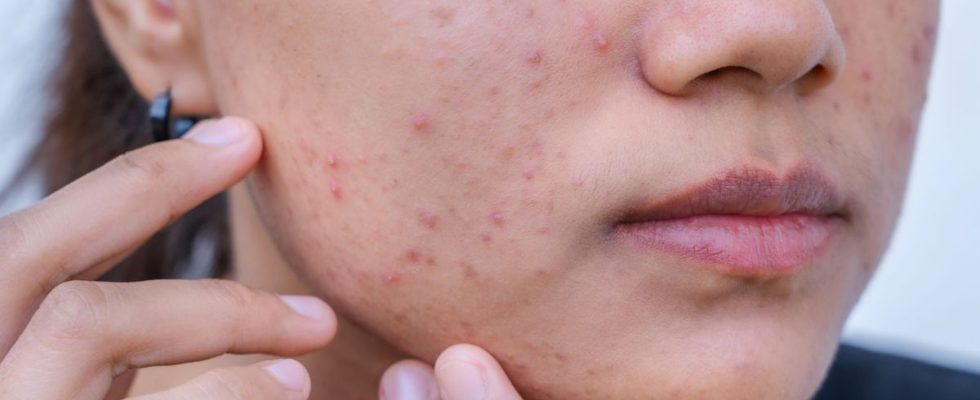Published on
Updated
Reading 1 min.
in collaboration with
Dr Gérald Kierzek (Medical Director of Doctissimo)
Isotretinoin is a treatment for severe acne. And as with all medicines, precautions should be taken during treatment. Here is a reminder, with Dr Gérald Kierzek, emergency doctor and medical director of Doctissimo.
To fight against severe acne, there is a treatment based on a molecule, isotretinoin. These drugs, which can be found in pharmacies under the names Acnétrait, Contracné, Curacne or Procuta, are indicated to treat severe acne when other treatments have not been effective. The duration of treatment must remain limited and the drug is generally prescribed for about 6 months.
What precautions should be taken with this molecule?
Taking isotretinoin can cause side effects, some of which are serious and may persist after treatment has ended. “Isotretinoin, which is actually a derivative of vitamin A, should only be prescribed for cases of severe acne, after trying other methods, such as local treatments, and like any medicine, it is essential to respect the “benefit-risk” balance each time” recalls Dr. Kierzek.
Two major risks are associated with the use of oral isotretinoin:
- the teratogenic risk: approximately 3 out of 10 babies whose mother is treated with isotretinoin during pregnancy will present with a serious malformation at birth;
- psychiatric disorders, in particular depressive disorders.
“The prescription of contraception is therefore compulsory at the same time as that of isotretinoin, in young girls. As for the psychiatric risk, it is also important to know, especially for relatives who can detect depression or suicidal disorders in their teenager.” reminds the doctor.
Two educational mini-films on adverse effects
The National Agency for the Safety of Medicines and Health Products (ANSM) has published a file on the subject comprising two educational videos recalling the psychiatric and teratogenic risks in one and the contraception to be put in place before any treatment, in the other. They are accessible via a QR code present since June 2023 on patient cards and information brochures for patients. It will also soon be affixed to medicine boxes.
